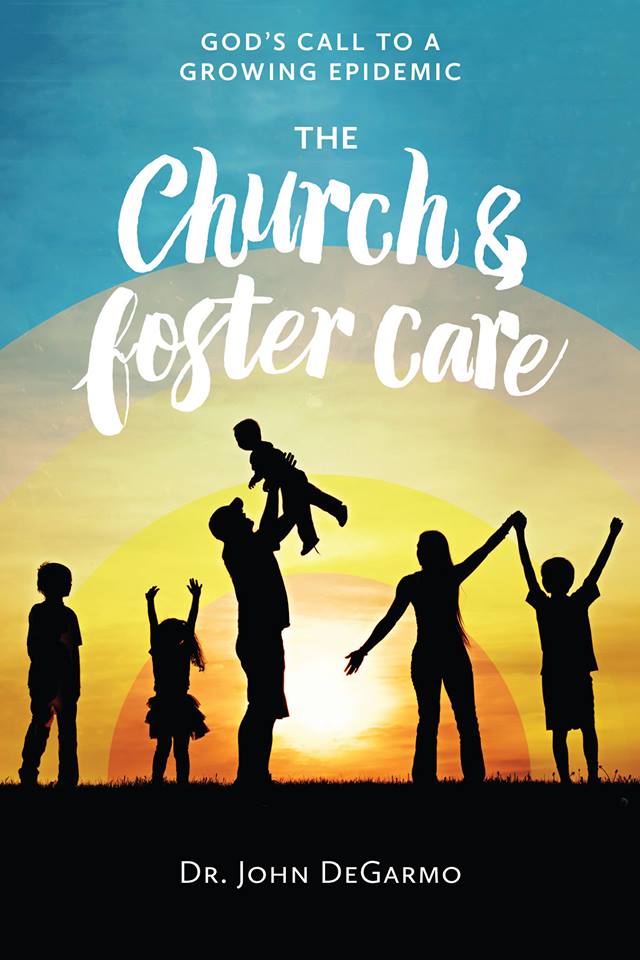
According to the social worker, the 13-year-old boy, 11- year- old girl, and 10- year- old boy had been living in a house of horrors. They suffered daily physical, verbal, and sexual abuse by the adults in their lives. Beatings and rape were common for all three. The home the children were staying at had no running water, no toilets, no electricity, no food, and no heat or air. A large blue tarp covered a large hole in one of the bedrooms, unsuccessfully trying to keep the rain and weather out. Three deputy sheriffs had to go into the home and remove the children from a dangerous environment.
“In all my years as a social worker, I have never seen anything like this,” Sharon told my wife and me. Sharon was the child’s case worker. “This was the most disturbing removal I have ever been part of.” Sitting across the dining room table, the three of us were signing paperwork for our newest children from foster care. The three children were downstairs, playing with some of the other children in our home, while we quickly took care of the required documentation.
“I am not exaggerating when I tell you that it was the worst thing I have ever seen,” she continued, her own eyes reflecting shock of her own. “We could literally not see the floor in the house.”
“What do you mean?” my wife Kelly asked, as she sat down her hot cup of tea. The two of us had been foster parents for eleven years at that point, with over 45 children coming through our home, and into our lives. To be sure, we had witnessed some horror stories of our own. “Why is that?” she again asked.
Sharon did not answer right away. Instead, she looked off into the distance, as if she were collecting her thoughts, and herself. After a moment, she looked at us, and her face easily expressed the horror she both saw and felt.
Join the thousands who receive Dr. DeGarmo’s FREE foster care newsletter. Simply fill out the form below.
“It was . . . awful,” she shuddered. “I can honestly tell you that you couldn’t see any of the floor in the entire house, as there was so much feces covering the floor.”
Stunned by this shocking revelation, I whispered aloud “feces? Human feces?”
Sharon’s voice shook as she responded. “I think there was a lot of that, mixed in with dog feces. One of the deputies who went into the house to retrieve the children had to walk back out of the house and take some time. He had become so horrified by the living conditions of these children that he was becoming sick to his stomach.”
Placing her hand to her mouth, Kelly was extremely, and understandably, distressed by the news. “Were the children,” she paused, and took a deep breath before continuing., “Were they in the house with this mess?”
“Some were,” responded the worker. “The older boy was in sitting in a car, with one of his mother’s teenage boyfriends. The two were acting as a look out for the police. When the police arrived, the 13-year-old tried to run back into the house and warn his mother. The 11-year-old girl was lying in a bed, which was covered in feces, while the 10-year-old was at another friend’s house. The mother was also lying in a feces covered bed with another boyfriend.” After asking about the father, Sharon informed us he was nowhere to be found. The mother’s current husband had pulled a knife on her the week before, and had since disappeared. As a source of income, the mother had been running a meth lab in the house, with her two teenage boyfriends, both only a few years older than the 13- year- old son.
Sadly, this is the reality of hundreds of thousands of children, not only around the world, but in the United States, as well. As I write this, and even as you read this, there are children in America who are having unthinkable crimes committed against them, not only by strangers, but by those who profess to love them the most—their family members.
However, it has been my experience as a foster parent the past 14 years that has changed me the most. During that time, I have had over 50 children come to be a part of my family. Some have stayed only a day or two. Some have stayed up to two years. The youngest to be placed into my home was just 27 hours old, while the oldest was 18 years of age. Each child that has come to live with my family and that has been placed into my home has made me a better father, a better husband, a better person. Has it always been easy? Indeed, it has not. There have been those sleepless nights when I tried to comfort a crying and confused child. There have been those days when I struggled to help a child in need deal with the grief and heartbreak they felt when a birth parent did not show up for a visitation. There have been those times when my wife and I were simply exhausted from the day to day challenges that come with being a parent to up to 10 children in the home. Yet, being a foster parent has been the most rewarding thing I have ever done.
But it isn’t for everyone.
For you see, not everyone is called to be a foster parent. As you know, not everyone has the skills to bring children into their home and care for those in need. To be sure, we are all given different skills and talents. For some, these talents might be to care for children in their own homes on a day to day basis. For others, it might be to support those who care for them, while others might be given the resources to share.
Perhaps there is a church in your area that is looking for a way to minister to others. Maybe your own church is seeking ways to reach out to those in need. Hosting a local foster parent association and support group is one such way a church can serve foster parents. Another way is serving as a location for family visitations. Churches can provide a safe, consistent, warm, and inviting atmosphere for children and birth family members to meet during visitation sessions. Indeed, not only can this be a form of outreach for a church, but the message of love and forgiveness is also being practiced, as well.
It is true. As a church, we have the opportunity to be witnesses of love for children in foster care. The mission is clear. Let us now take this mission onto the mission field. Let us begin to care for the 475,000 children in foster care in the not only our nation, but in our states, and in our own backyards.
(Excerpt from The Church and Foster Care: God's Call to a Growing Epidemic.)
-Dr. John
Want MORE about this? Order your signed copy of the new book The Church and Foster Care. Order your special copy HERE.





 RSS Feed
RSS Feed